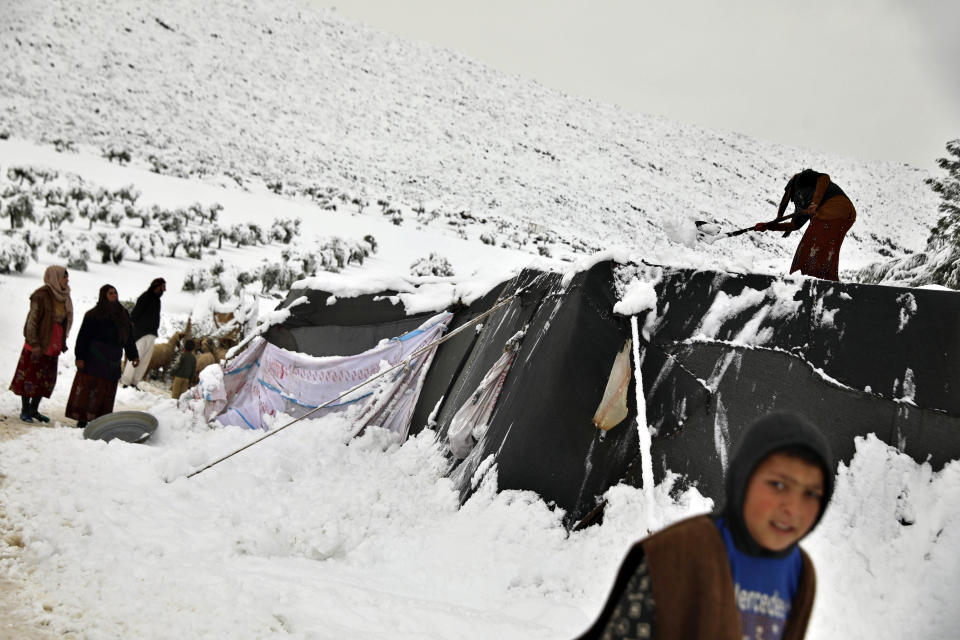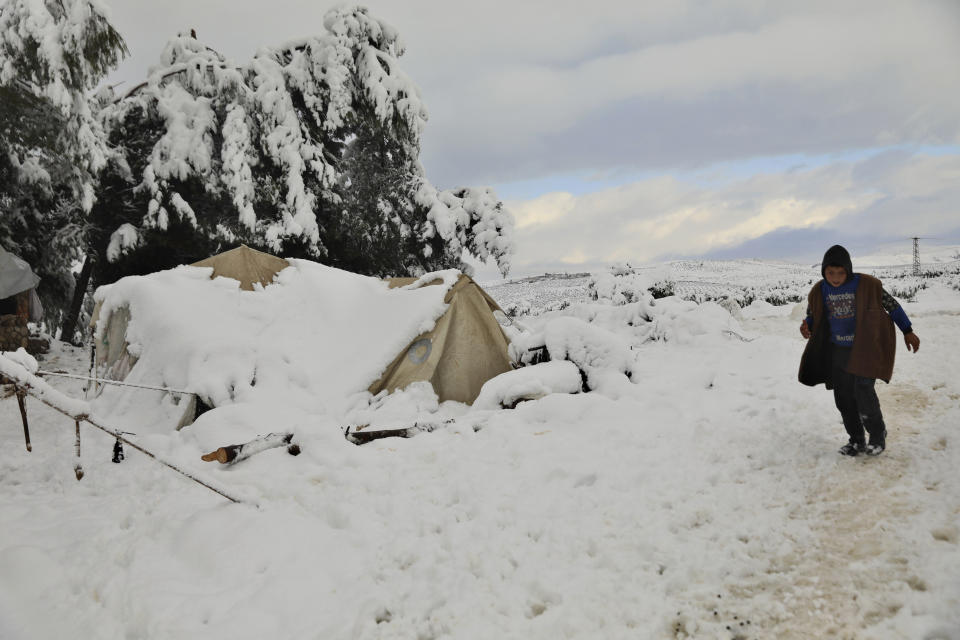UN: $39 million needed for Syrians in northwest this winter
UNITED NATIONS (AP) — Heavy snow and freezing rain have seriously affected about 250,000 displaced Syrians living in camps in the last major opposition stronghold in northwestern Syria, with tents collapsing and children having to walk in the snow in sandals, a senior U.N. humanitarian official said Monday.
“It’s a real disaster zone,” said Mark Cutts, the U.N. deputy regional humanitarian coordinator for the Syria crisis who is in charge of cross-border aid operations from Turkey to the northwest.
The recent snowstorm in the Middle East has left many Syrians as well as Lebanese, Jordanians and residents of eastern Turkey struggling to survive. And in Gaza, rain flooded streets in freezing temperatures, leaving residents struggling to stay warm.
Cutts said during a virtual news conference that northwest Syria has been especially hard hit because it has one of the most vulnerable populations in the world — 2.8 million displaced people living mainly in camps that “are bad at the best of times because it’s a war zone.” Despite a cease-fire, there has been shelling almost every day in the last year as well as a lot of airstrikes.
“But now during this extremely cold weather, we’ve seen some real horror scenes in the last few days,” he said. “About a thousand tents have either collapsed completely or been very badly damaged as a result of heavy snow in some areas and freezing temperatures,” down to minus 7 degrees Celsius (about 19 degrees Fahrenheit), as well as a lot of rain in some parts.
“So about 100,000 people have been affected by the heavy snow and about 150,000 people living in tents have been affected by the rain and then freezing temperatures,” Cutts said. “That’s a quarter of a million people who are really suffering now the worst effects of this cold spell that is going across the entire region.”
He said humanitarian workers have been pulling people out from under the collapsed tents. Many don’t have shovels or other equipment to clear the snow from their tents so they have been using their bare hands and children have been photographed “walking in the snow and on the ice in their sandals,” Cutts said.
He said snow and cold are particularly bad for elderly and disabled people “living in these torn and ripped and flimsy tents in these sub-zero temperatures.”
This kind of winter weather is a regular occurrence in northwest Syria, Cutts said, and the United Nations handed out “winterization items,” including clothing and blankets last June and July..
But the U.N.’s $4 billion appeal for humanitarian aid for Syria in 2021 was only 45% funded, compared with 58% in 2020, he said. Of the $84 million required for winterization in the northwest, only $45 million has been received so far, leaving a gap of $39 million.
Cutts said in the last few days humanitarian workers have been trying to clear roads, get mobile clinics to people in need, repair or replace tents, and provide other urgently needed relief items including food, blankets and winter clothing.
But what is desperately needed is more money, he said, and “political will” to end the 11-year conflict.
“We are really appealing to the international community, to do more to recognize the scale of the crisis and to help us to get these people out of tents Into safer, more dignified, temporary shelter,” Cutts said. “It’s a really dramatic situation that we’re dealing with at the moment.”

 Yahoo Movies
Yahoo Movies 


